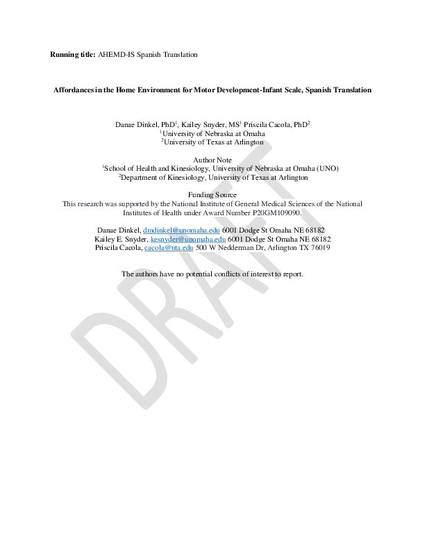
The home environment has a critical influence on an infant’s development and well-being. The Affordances in the Home Environment for Motor Development-Infant Scale (AHEMD-IS) is an instrument that has been developed to assess the home environment. This article illustrates the translation, validation, and cultural adaptation process of the AHEMD-IS from English to Spanish. The AHEMD-IS underwent a comprehensive process involving a four-phase translation process: (1) Forward translation, (2) Semantic equivalence, (3) Content equivalence testing, and (4) Final version development. Steps 1 and 2 resulted in linguistic alterations from the initial translation to enhance clarity for general public understanding. In step 3, mothers reported that the instrument was clear and easy to complete. Step 4 involved a final review of the instrument. The final outcome is a validated instrument that may prove beneficial when evaluating the home environment with Spanish speaking populations, particularly those of Mexican descent.
Available at: http://works.bepress.com/danae-dinkel/47/

This is an Accepted Manuscript of an article published by Taylor & Francis in Early Child Development and Care on 28 June 2017, available online: https://www.tandfonline.com/doi/abs/10.1080/03004430.2017.1344653.